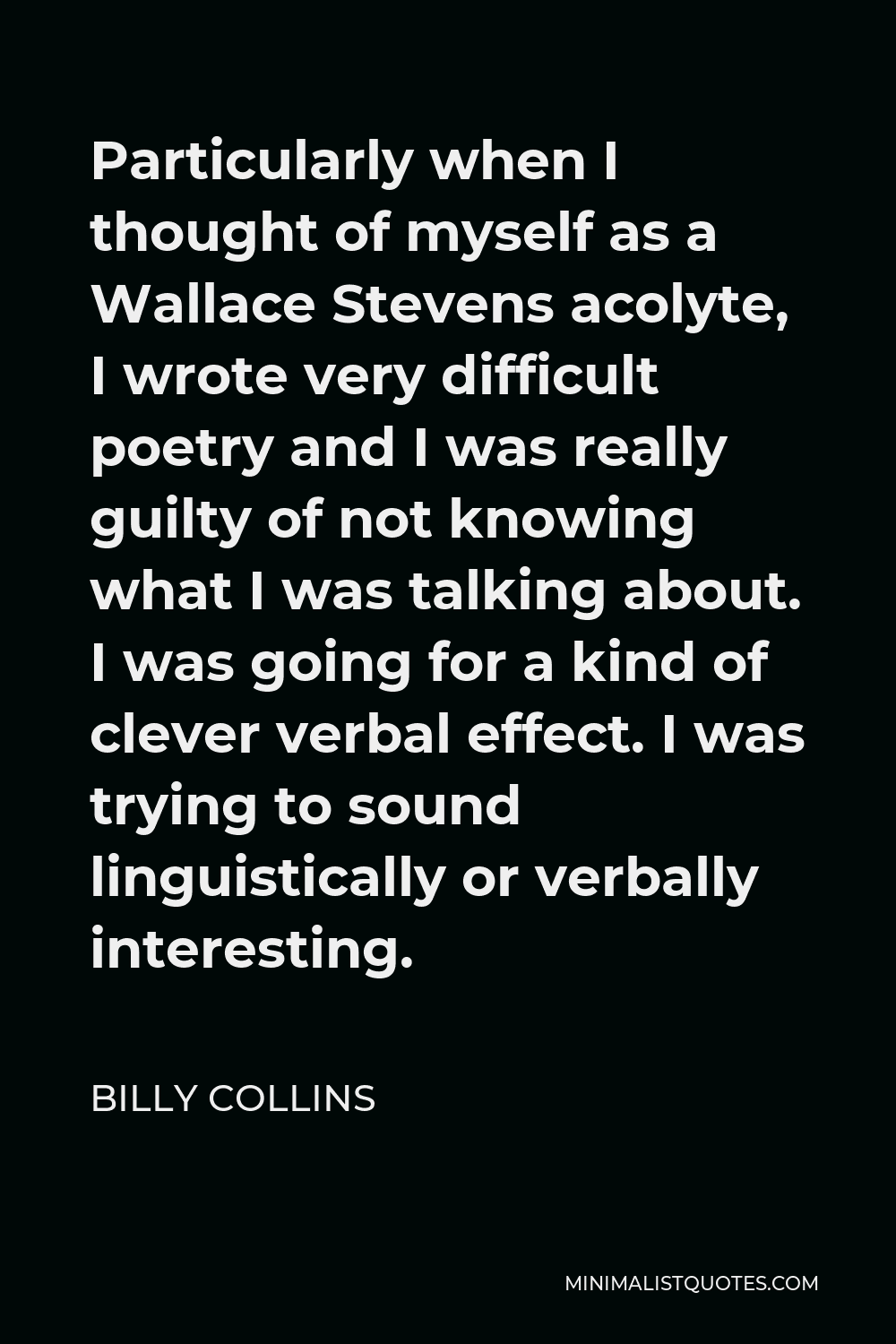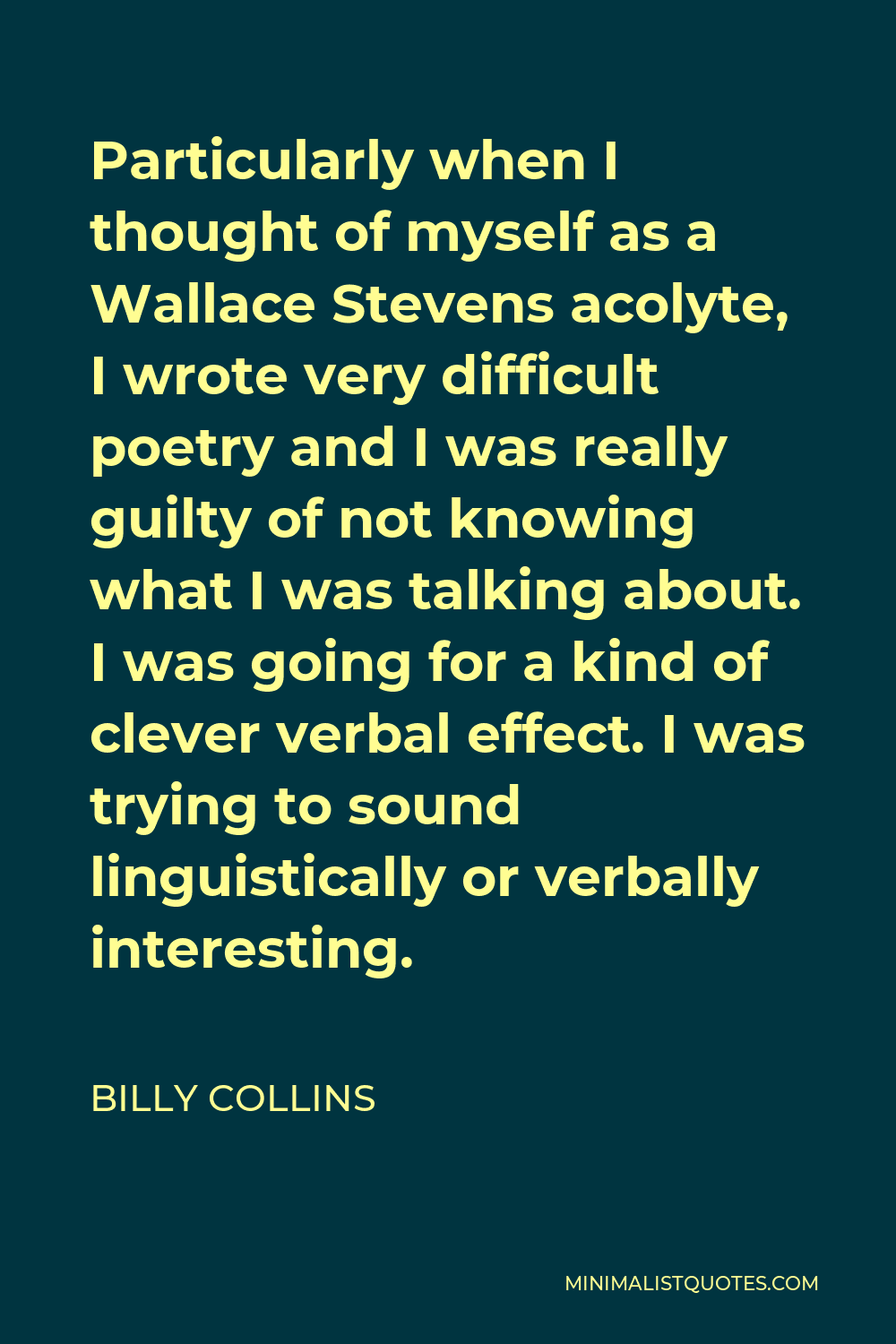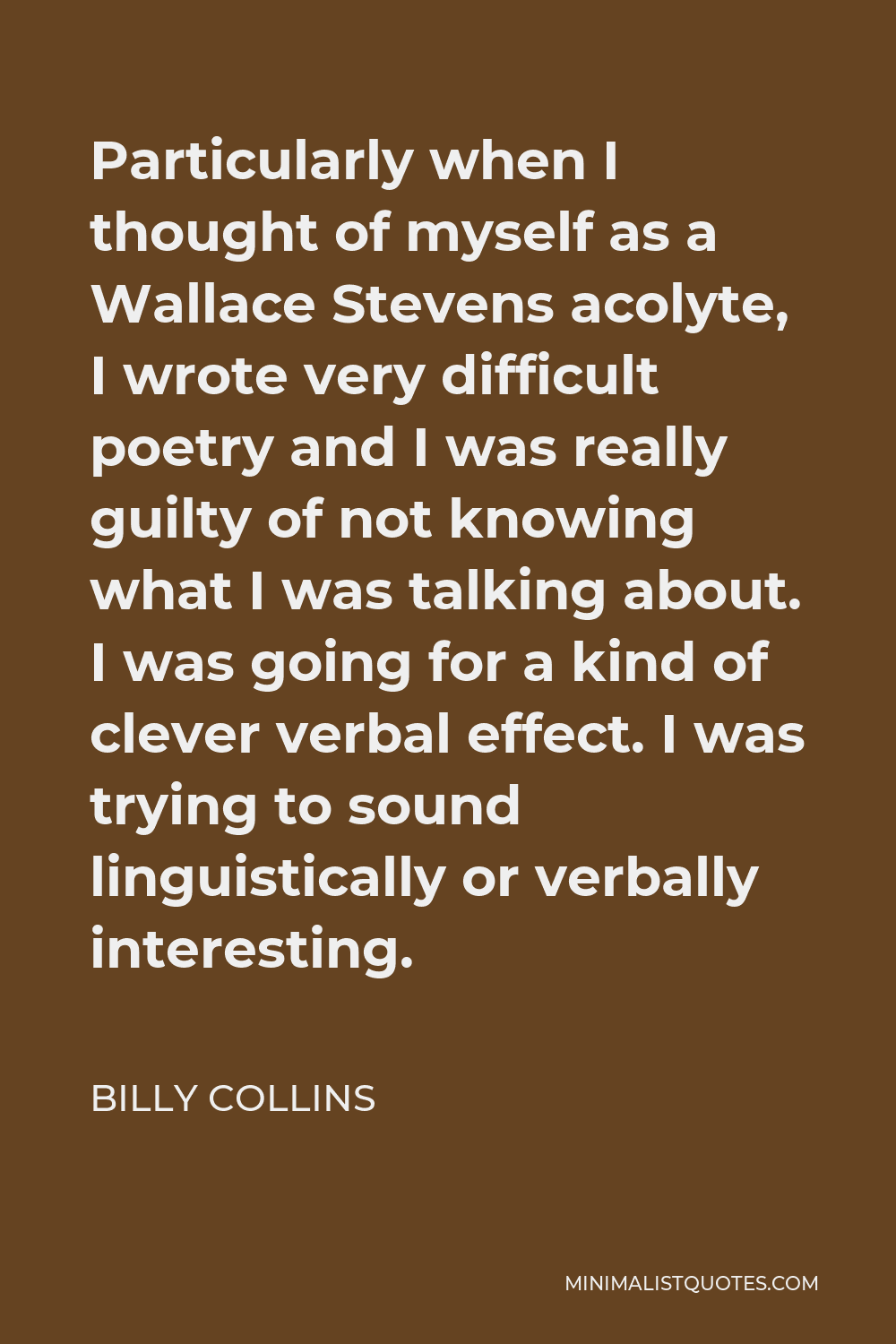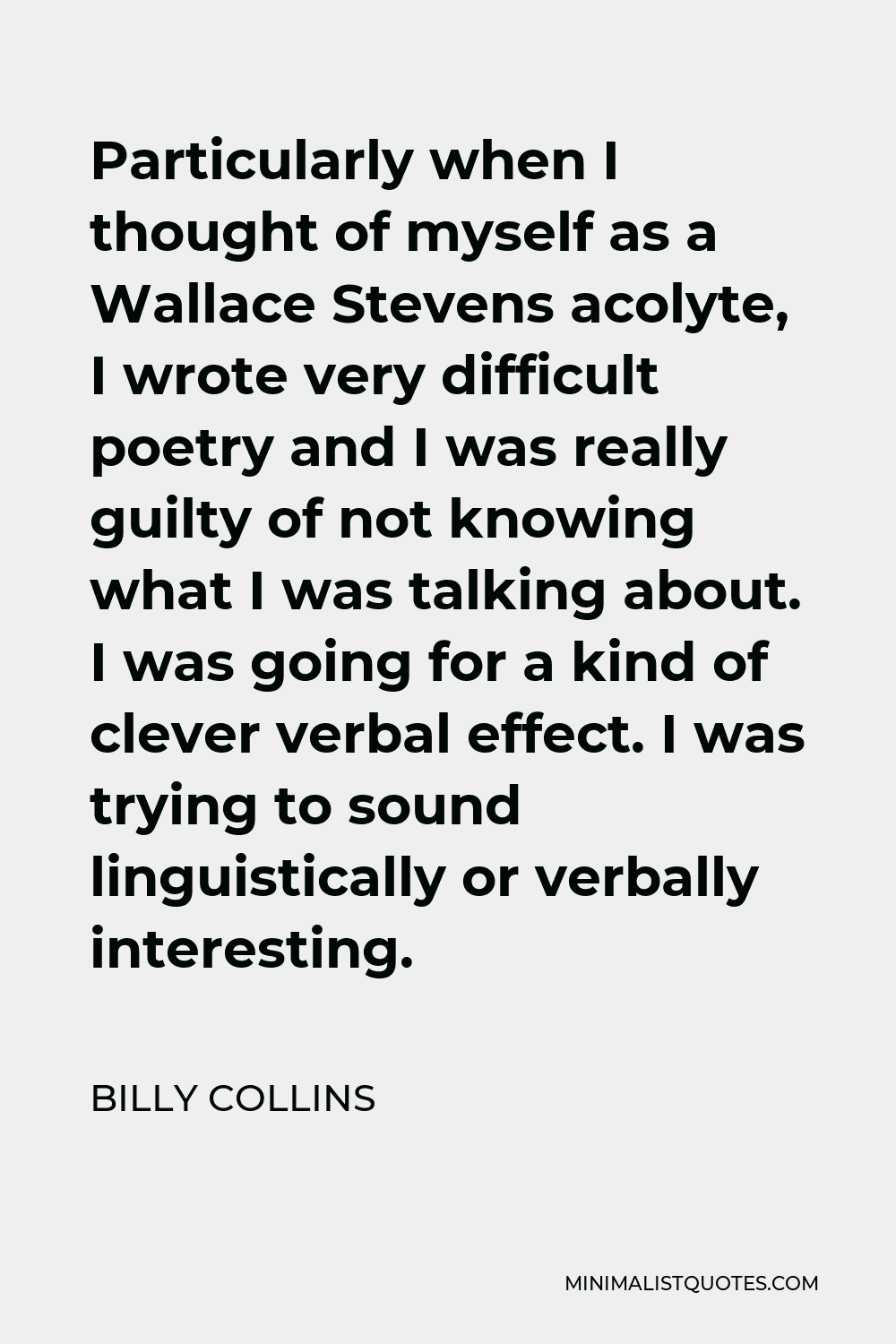I think more influential than Emily Dickinson or Coleridge or Wordsworth on my imagination were Warner Brothers, Merrie Melodies and Looney Tunes cartoons.
BILLY COLLINSParticularly when I thought of myself as a Wallace Stevens acolyte, I wrote very difficult poetry and I was really guilty of not knowing what I was talking about. I was going for a kind of clever verbal effect. I was trying to sound linguistically or verbally interesting.
More Billy Collins Quotes
-





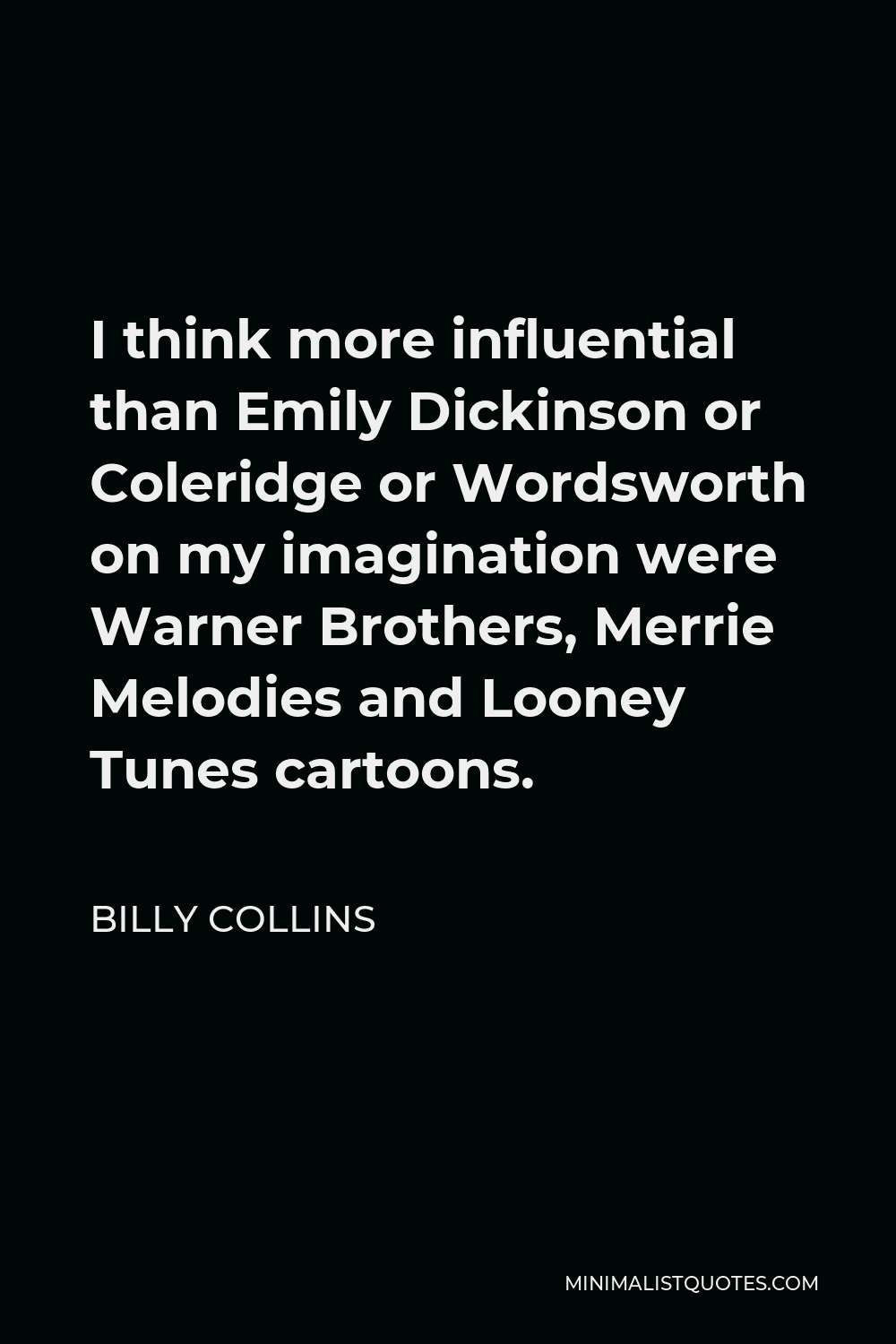
-





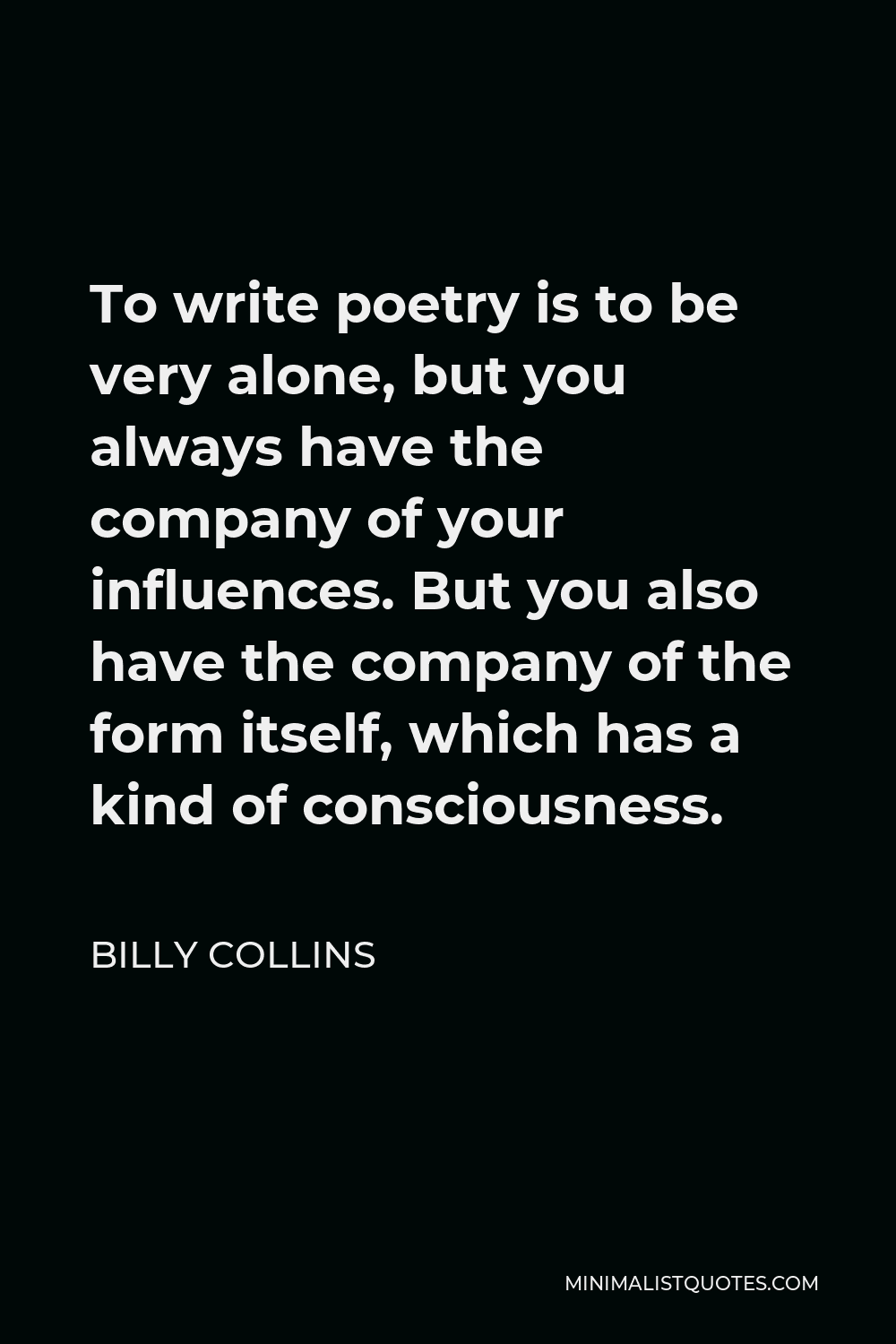
To write poetry is to be very alone, but you always have the company of your influences. But you also have the company of the form itself, which has a kind of consciousness.
BILLY COLLINS -





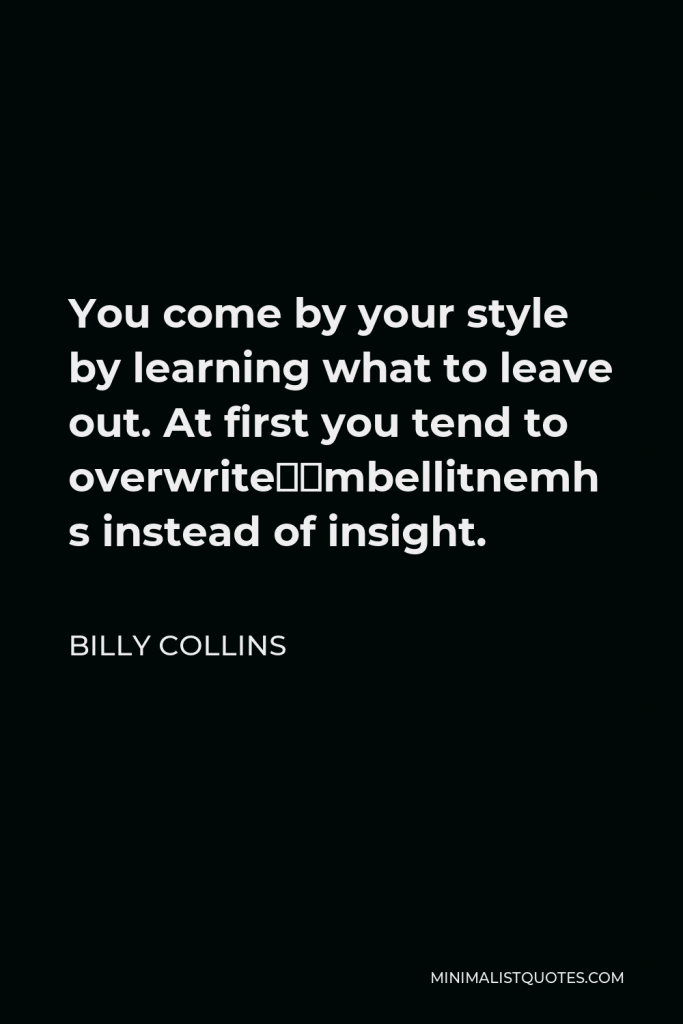

You come by your style by learning what to leave out. At first you tend to overwrite—embellishment instead of insight.
BILLY COLLINS -





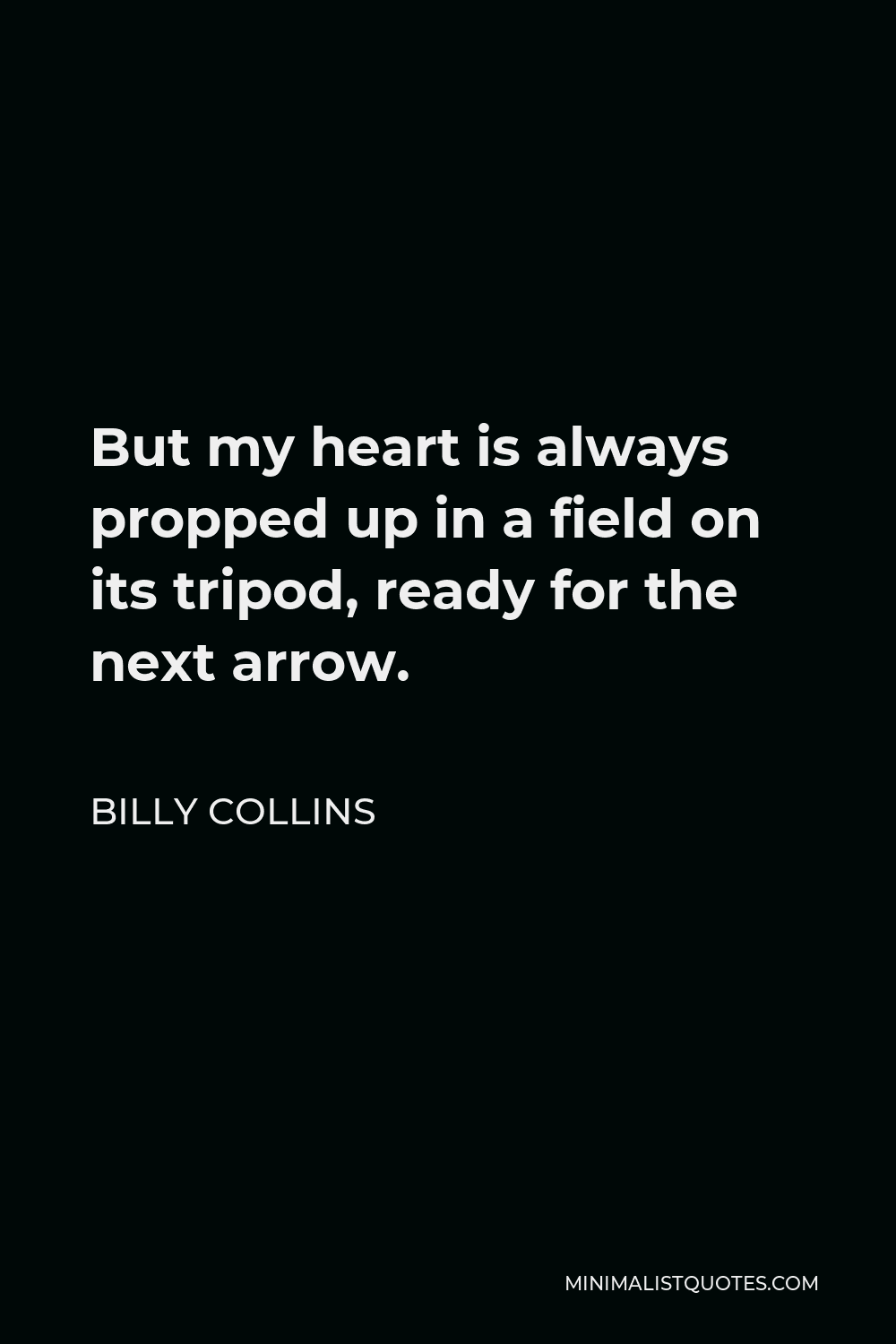
But my heart is always propped up in a field on its tripod, ready for the next arrow.
BILLY COLLINS -





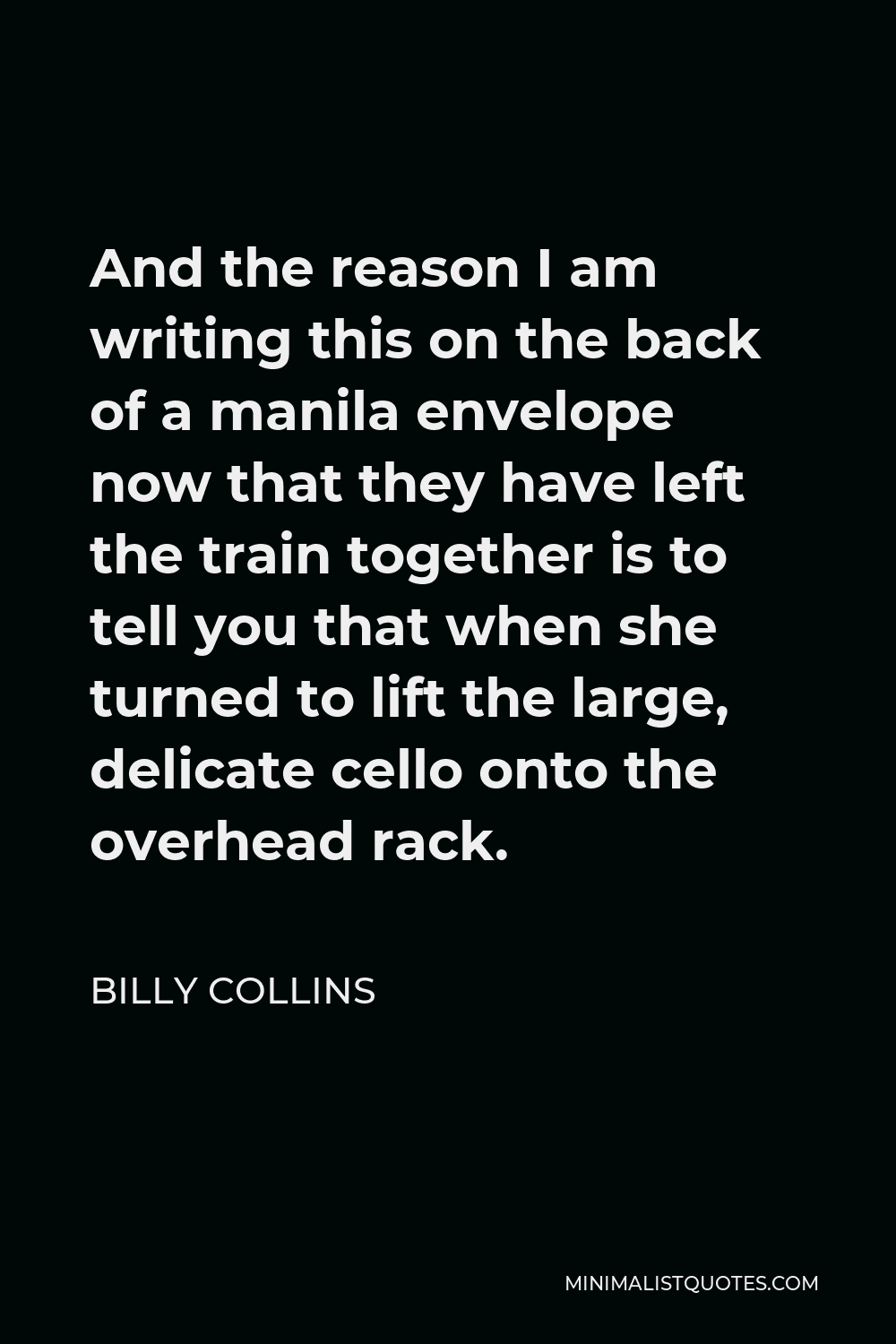
And the reason I am writing this on the back of a manila envelope now that they have left the train together is to tell you that when she turned to lift the large, delicate cello onto the overhead rack.
BILLY COLLINS -





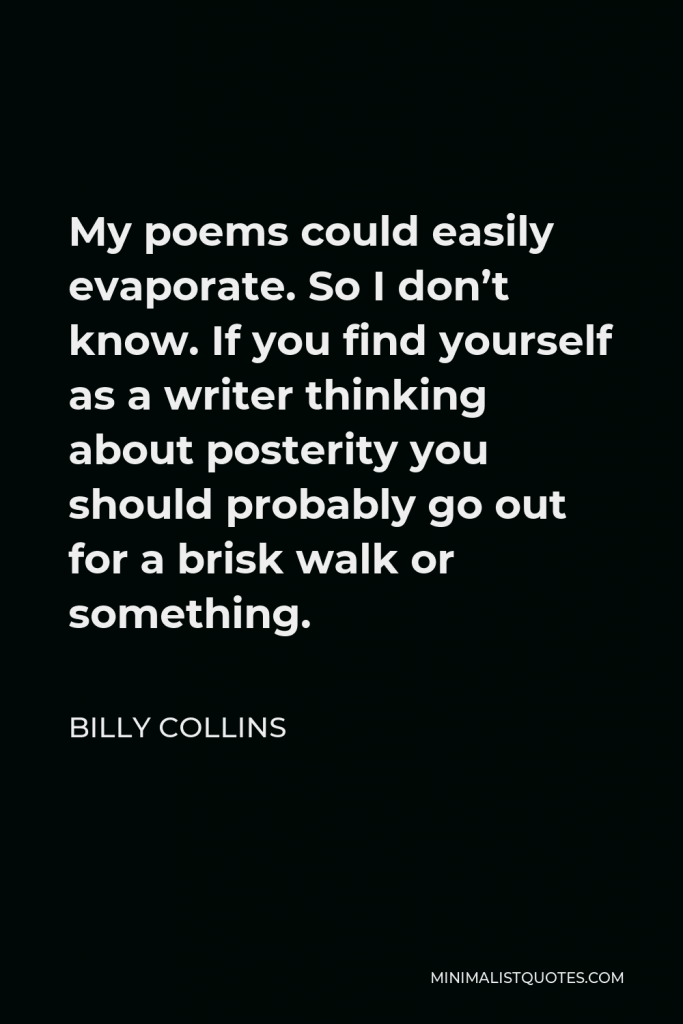

My poems could easily evaporate. So I don’t know. If you find yourself as a writer thinking about posterity you should probably go out for a brisk walk or something.
BILLY COLLINS -





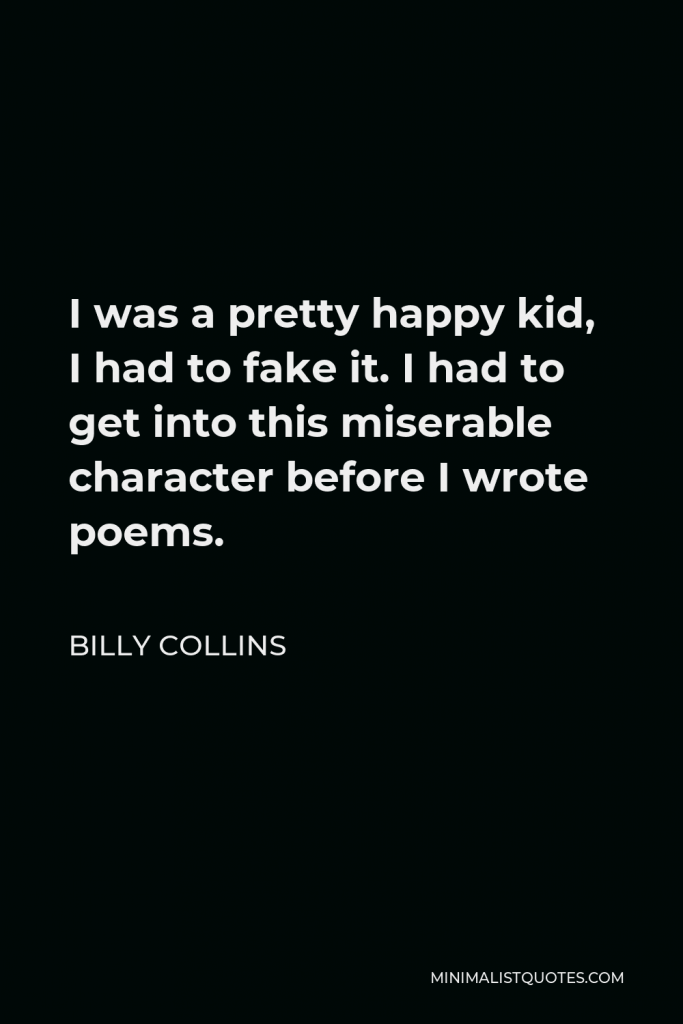

I was a pretty happy kid, I had to fake it. I had to get into this miserable character before I wrote poems.
BILLY COLLINS -





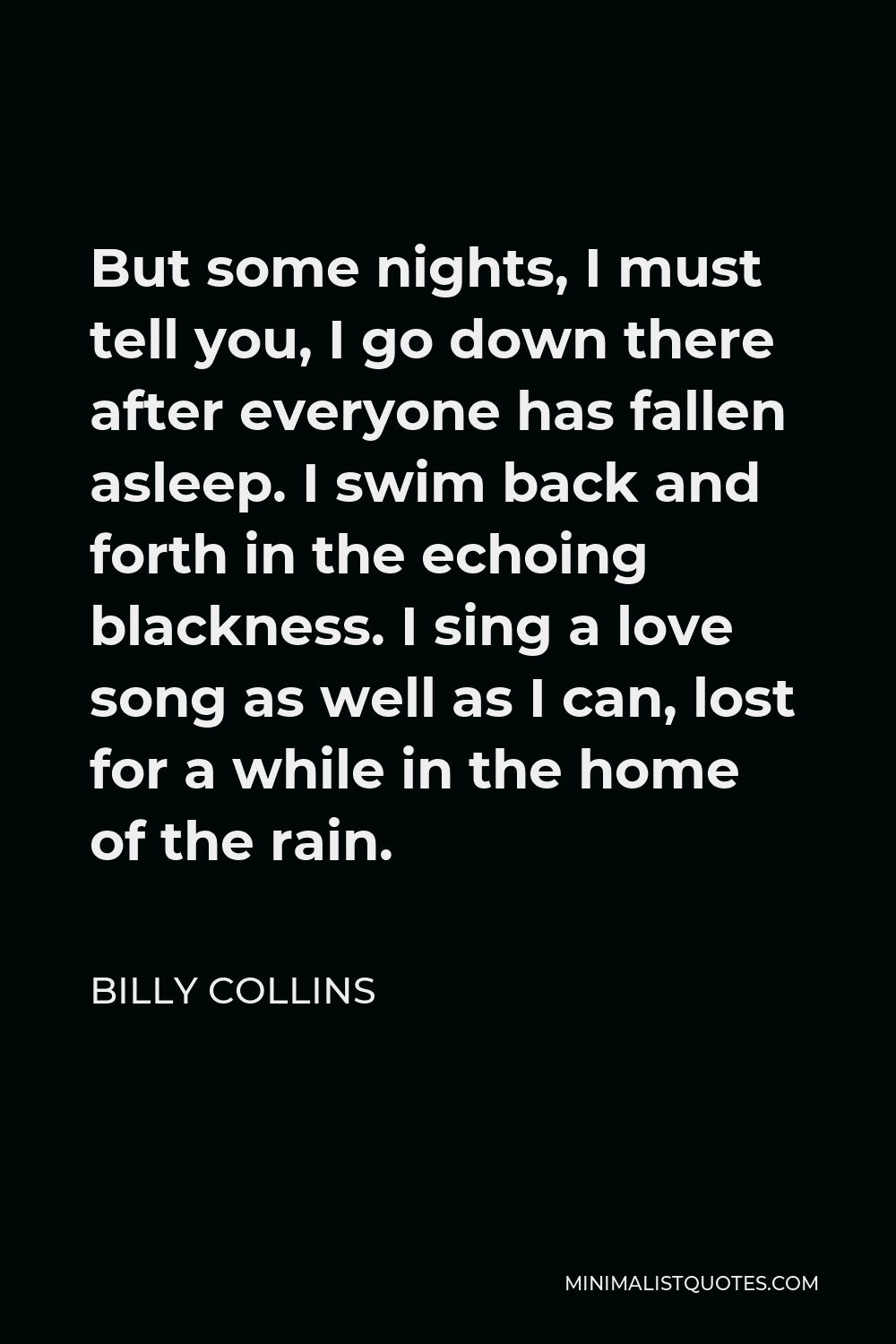
But some nights, I must tell you, I go down there after everyone has fallen asleep. I swim back and forth in the echoing blackness. I sing a love song as well as I can, lost for a while in the home of the rain.
BILLY COLLINS -





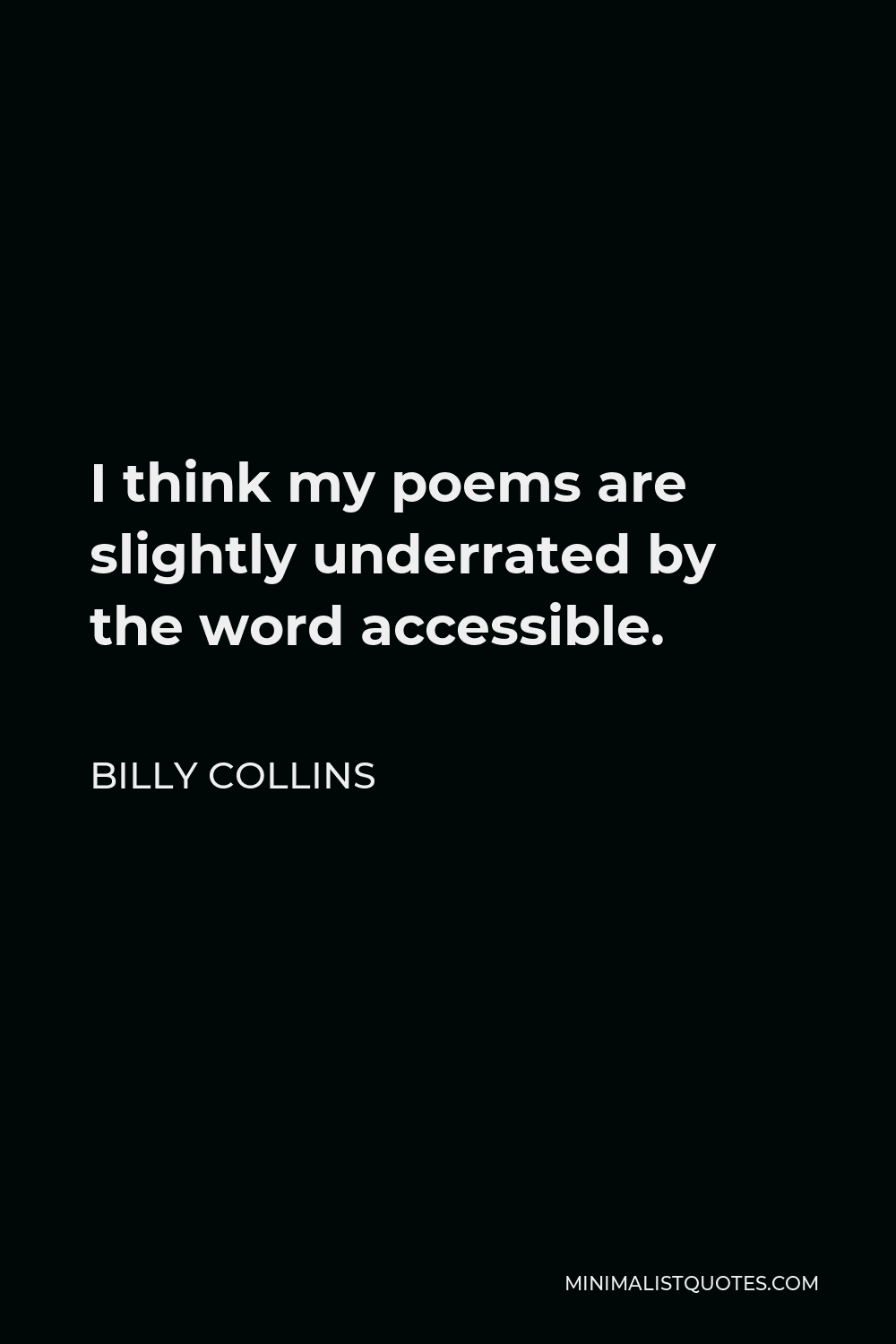
I think my poems are slightly underrated by the word accessible.
BILLY COLLINS -





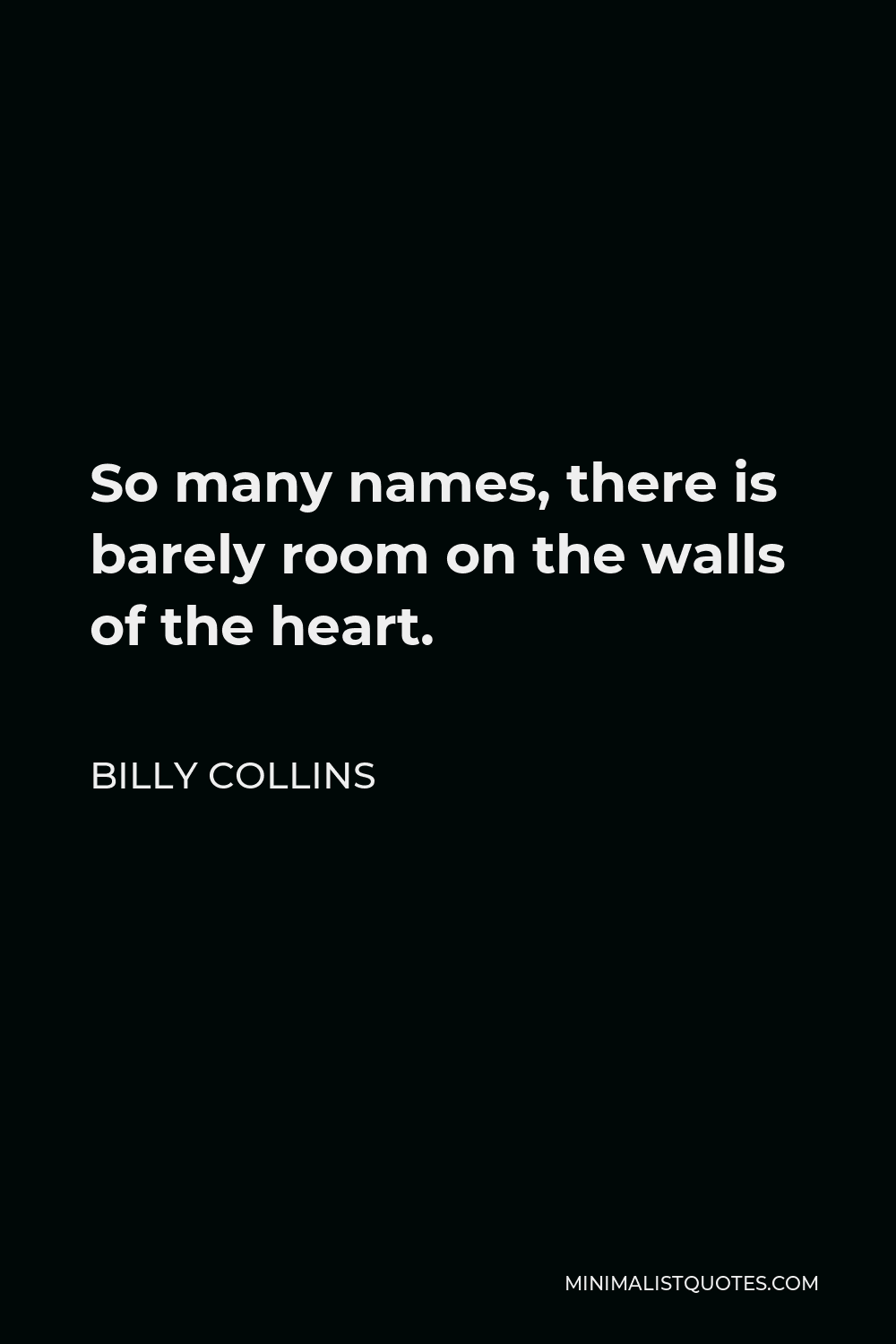
So many names, there is barely room on the walls of the heart.
BILLY COLLINS -





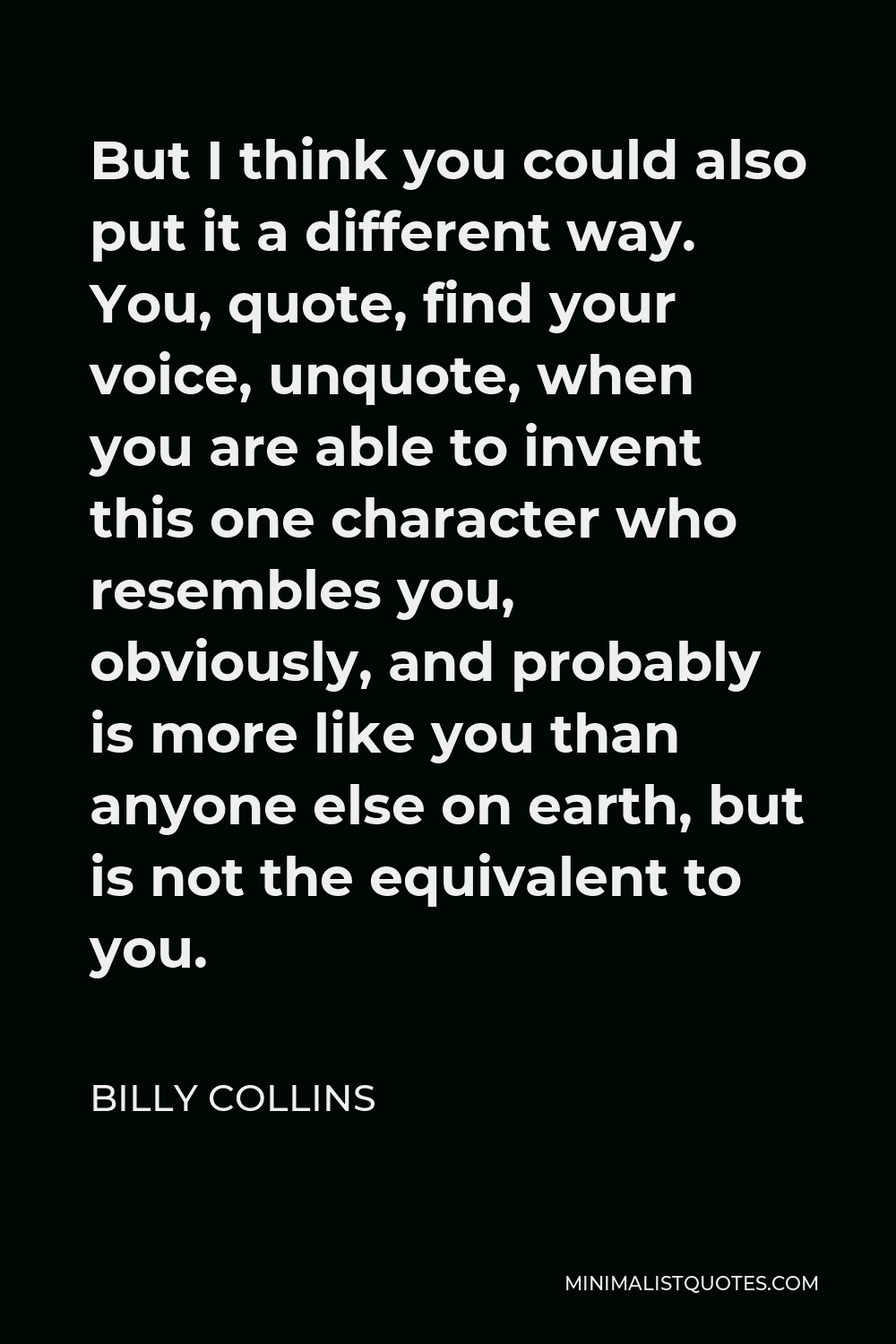
But I think you could also put it a different way. You, quote, find your voice, unquote, when you are able to invent this one character who resembles you, obviously, and probably is more like you than anyone else on earth, but is not the equivalent to you.
BILLY COLLINS -





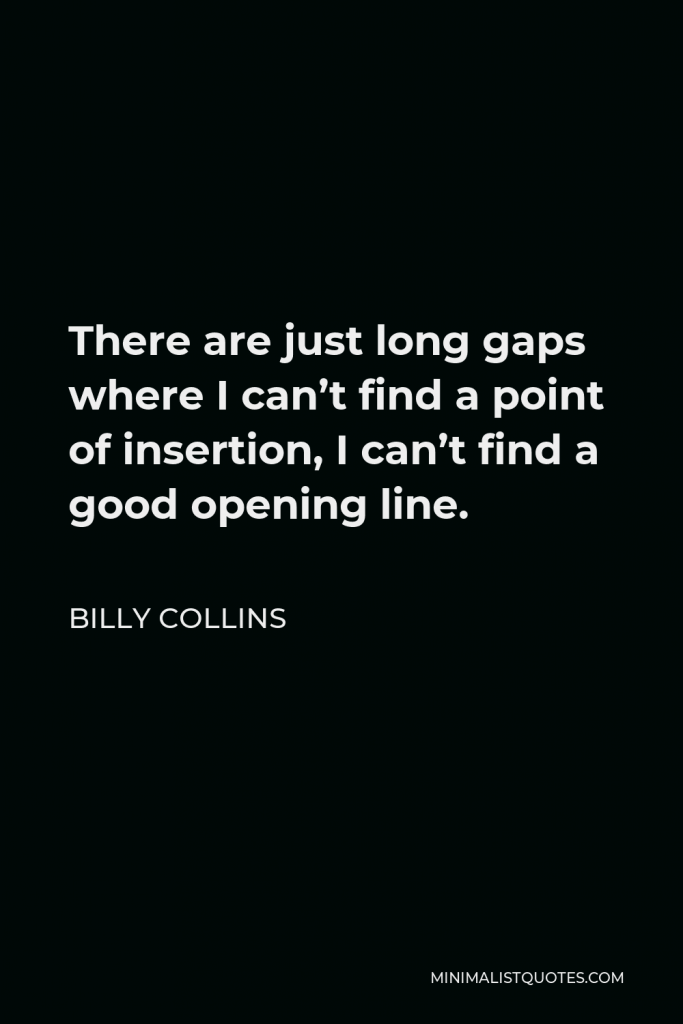

There are just long gaps where I can’t find a point of insertion, I can’t find a good opening line.
BILLY COLLINS -





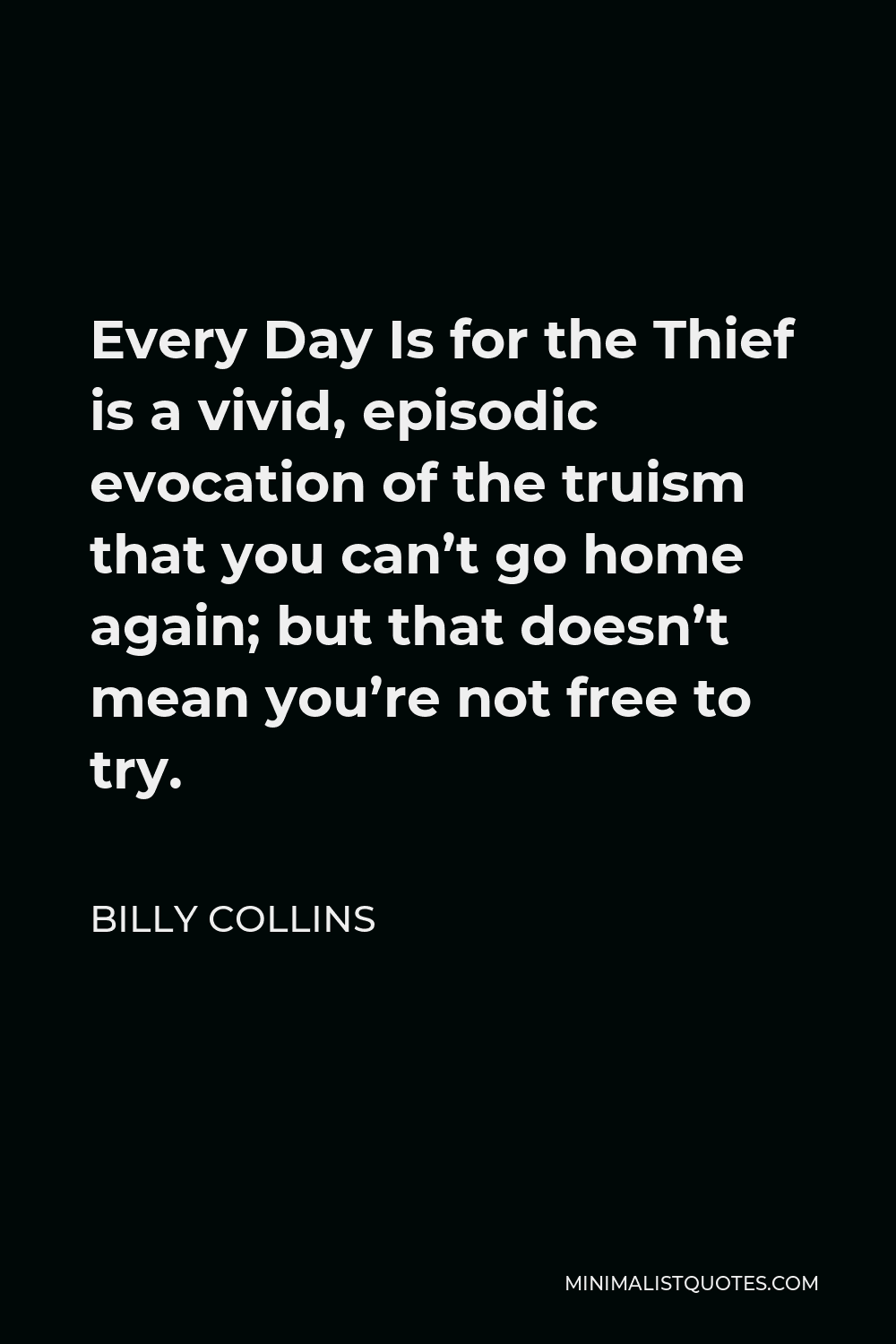
Every Day Is for the Thief is a vivid, episodic evocation of the truism that you can’t go home again; but that doesn’t mean you’re not free to try.
BILLY COLLINS -





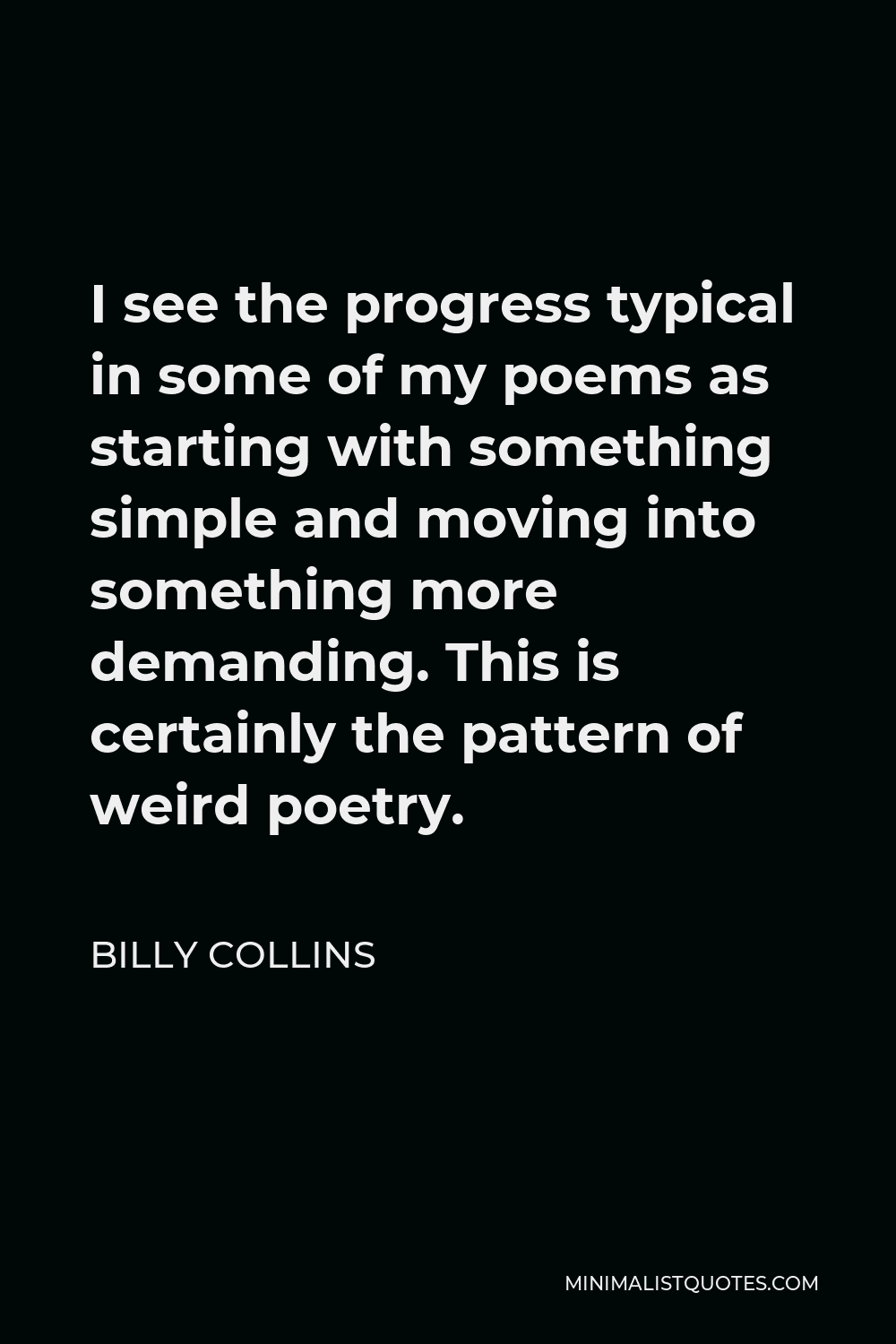
I see the progress typical in some of my poems as starting with something simple and moving into something more demanding. This is certainly the pattern of weird poetry.
BILLY COLLINS -





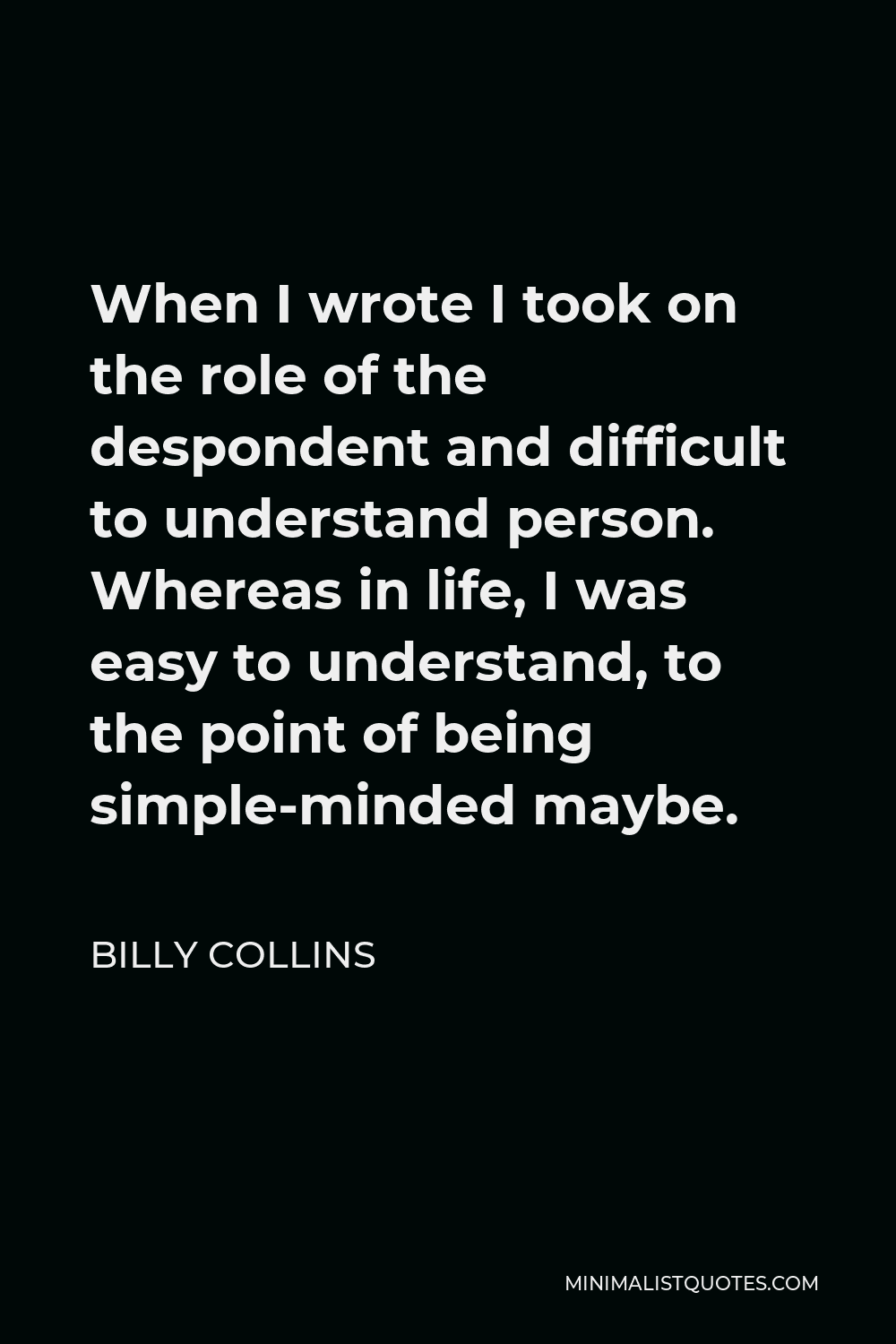
When I wrote I took on the role of the despondent and difficult to understand person. Whereas in life, I was easy to understand, to the point of being simple-minded maybe.
BILLY COLLINS -





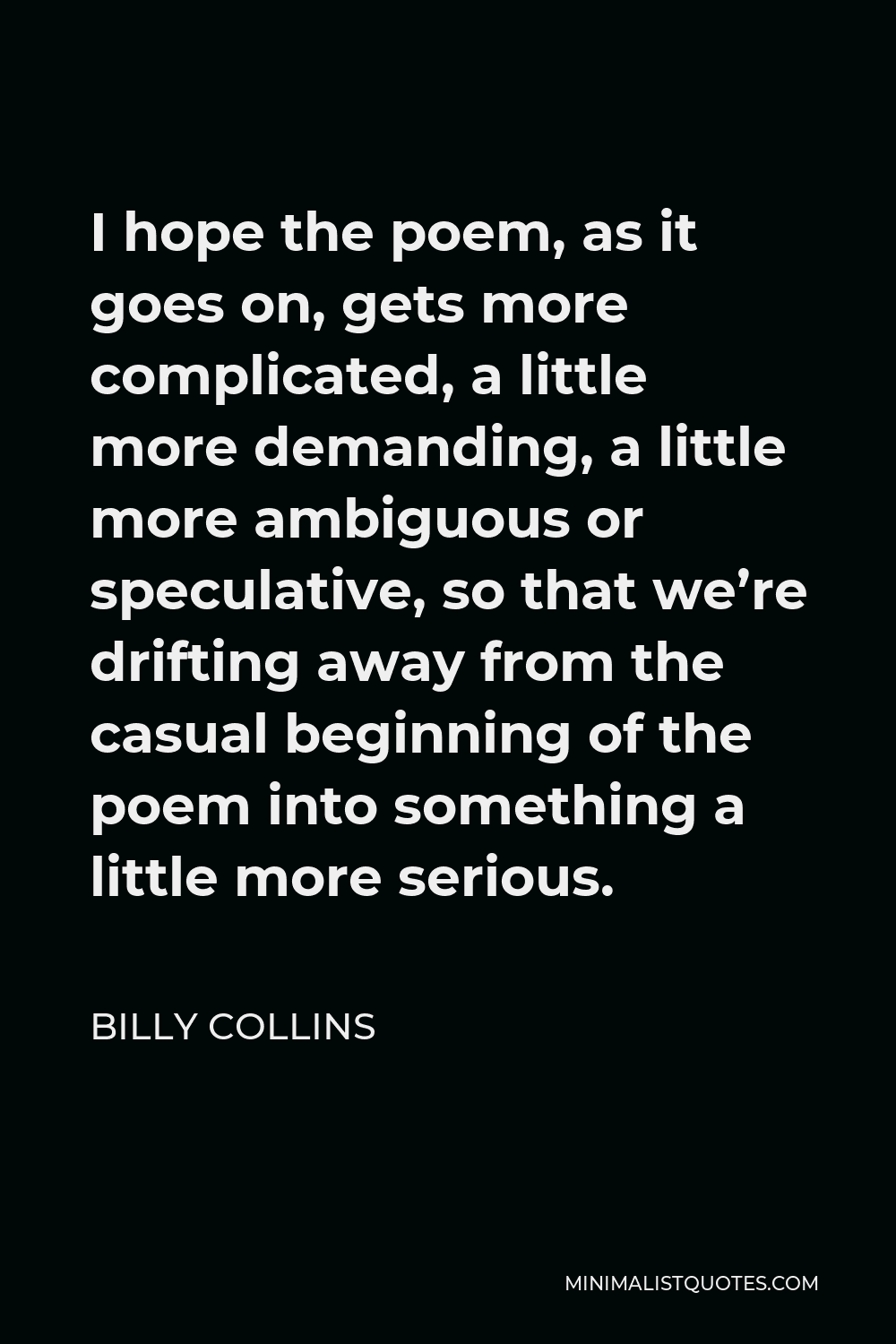
I hope the poem, as it goes on, gets more complicated, a little more demanding, a little more ambiguous or speculative, so that we’re drifting away from the casual beginning of the poem into something a little more serious.
BILLY COLLINS
